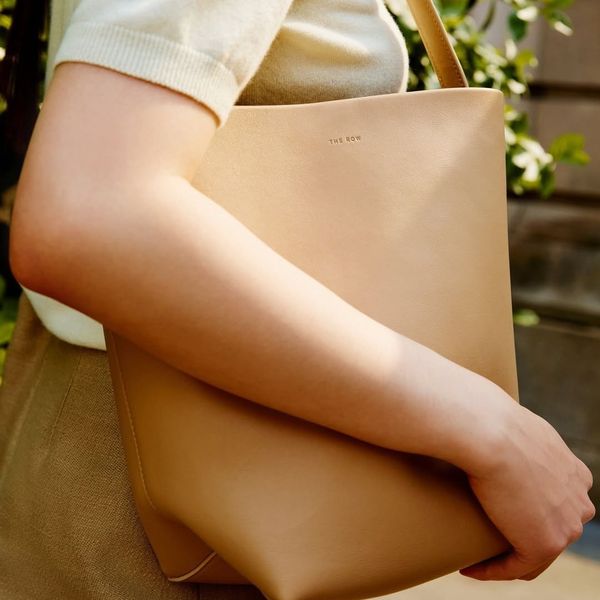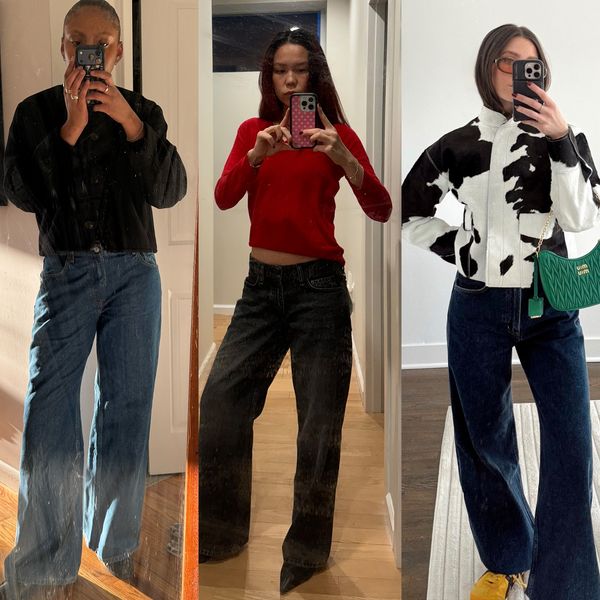The Quiet Resistance of the ‘Sleepy Girl’
For young women, a cultural shift towards the unconscious has taken hold.

Over the past few months, in part due to an operation, I’ve been sleeping more than ever. But my need for 9 hours a night and a nap or two isn’t new. Naps are my vice: a day without one stretches too far ahead of me, like a sweaty hike without a bench or conveniently located log to perch on. Fran Leibowitz put it best in her essay "Why I Sleep”: “Sleep is the consummate protection against the unseemliness that is the invariable consequence of being awake. What you don't know won't hurt you. Sleep is death without the responsibility.”
And it appears that Fran and I are in good company. Over the past few years, a cultural shift towards the unconscious has taken hold. My Year of Rest and Relaxation, a literary ode to being “free from the miseries of waking consciousness,” became a cult classic, “bed rotting” and memes touting sleep as the ultimate escape (often against the backdrop of a 1621 portrait of a woman wasting away in her deathbed) won over the algorithm, and Dakota Johnson sparked shock and awe for “easily” sleeping 14 hours a night. More recently, Kim Kardashian graced the “Sleeping Beauties: Reawakening Fashion”-themed Met Gala exhibit in an ostensibly slept-in plait and pill-laden cardi, and Bianca Censori stepped out in black knee boots clutching a white pillow to her chest—a look internet neologists have coined pillowcore.
Of course, men get tired, too. But aside from that viral Cillian Murphy clip, where the notoriously laconic actor is instantly animated by the mention of sleep, it's tired women who have carved out a place in the zeitgeist. And nothing typifies them better than the “sleepy girl” trope. A distant cousin of the “sad girl” in her aesthetic and languidness, the sleepy girl is a perennially exhausted nap addict. She just can’t right now; she’s tired. So what bore a generation of unconsciously aspirant young women, fortified with their own allegedly soporific mocktail?
For previous generations guided by the motto “I’ll sleep when I'm dead,” taking to the bed was often assumed symptomatic of mental illness. And today, amid a youth mental health crisis, that theory tracks. (Depression is the catalyst behind My Year of Rest and Relaxation protagonist’s pharmaceutically-induced coma.) Dr. Shelby is a clinical psychologist with a private practice in White Plains, New York, who specializes in behavioral sleep medicine. She tells me that excess sleep is a problem among her female patients, to the point that many are “missing things that they need to or want to be doing.” As depression is more common among women than men, she suggests that this may be why excess sleep (at least judging by the internet and pop culture) seems to be more common among women.
The sleepy girl is a perennially exhausted nap addict. She just can’t right now; she’s tired.
But whether it's spurred by depression or not, sleep is a powerful coping mechanism. “Sometimes my body gets so overwhelmed that it’s like I need the blank space of a nap,” says London-based actor and content creator Courtney Buchner. Indeed, studies have shown that naps have mood-regulating properties. Given the economic crisis, skyrocketing house prices, and the impact social media is having on mental health (particularly girls and women’s), it's understandable that cozy oblivion might come as a welcome respite. And for some people, stress can even be somniferous (something that makes you tired). I, for one, often feel a gravitational pull toward the bed when something stressful happens: before I know it, my pillow is doused in lavender, and I’m setting an alarm for never.
It's also perhaps not coincidental that our predilection for excess sleep has arisen amid a backlash against hustle-hard #girlboss culture. Paul Huebener, an English professor at Athabasca University who specializes in critical sleep studies, argues that young people’s desire for rest speaks more to a percolating anti-capitalist sentiment than it does the mental health crisis. (Though, arguably, capitalism begets poor mental health.) “Life is inherently political, and sleep—perhaps counterintuitively—can be a political response to a world that doesn’t want us to rest… Removing oneself, at least temporarily, from frantic productivity doesn’t have to mean that something is wrong with a person,” he argues. “Naps are like gifts to myself, reminders that I can let myself rest, and that’s okay,” echoes Buchner. It’s a sentiment that bore the The Nap Ministry, a pro-rest movement underscored by the doctrine that in a culture obsessed with productivity, “rest is resistance”—particularly for African American people, who have been deprived of such rest for generations.
Tracking with the “sleepy girl” rhetoric, Huebener stresses that rest can be particularly transgressive for women. “The culture of exhaustion has deep connections to sexism and patriarchy. Labor expectations around caregiving, meal planning, the mental load of maintaining the functioning of a family—we are nowhere close to gender parity on these things… Bed rotting is a way to fight back against exhaustion and patriarchy all at once, and it’s a way for women to assert that their own relaxation holds intrinsic value,” he says. Adding that “there is more than a touch of sexism in the idea that if a woman wants to rest, she must be mentally ill.”
In a post-COVID, working-from-home epoch, many workers have even copped to taking naps while on the clock. (Sleep is my favorite break time hobby, as it renders me blissfully unaware of all the things I should be doing.) But such is a luxury only afforded to white collar workers, while, for many, getting even the recommended amount of sleep is a luxury. It’s why, according to Huebener, when fighting the culture of exhaustion, resting is only a short-term solution. “A longer-term answer is to demand better working conditions and social safety nets for everyone.”
I, for one, often feel a gravitational pull toward the bed when something stressful happens: before I know it, my pillow is doused in lavender, and I’m setting an alarm for never.
In recent years, the explosion of wellness culture reiterated the importance of adequate rest. But it also—ironically given the above—marketed quality sleep as something that can be bought. But for those unmoved by the promise of oura rings and weighted blankets—and for young people with little disposable income—sleep remains a free means of looking after yourself. Page Elsie, the proprietor of TikTok account The Bed Witch, where she shares videos of herself relaxing in a bohemian-style bedroom to an audience of 350,000 followers, believes that young women’s affinity for sleep “could be as simple as seeing it as another form of self-care. It doesn’t require you to go out and spend a bunch of money.”
And when it comes to the sleepy girl, it’s pertinent that it’s a girl, not an adult woman, that’s doing the sleeping. Children and teenagers are expected to sleep; their brains are still developing. The trope is part of an internet-wide rejection of adulthood: a generation of women with a collective case of extended adolescence or who, in internet jargon, feel like teenagers in their twenties. “I think as younger generations grow up and see that our reality is not the one we were promised, we’re just trying to find ways to cope and make whatever we can into something more enjoyable, to find the beauty within it,” says Elise.
For many women, bed is a sanctuary, a cozy enclave removed from the perils of the outside world. “Girls can sometimes find it difficult to have safe spaces outside the home, so embracing being in their own [space] and having these little rituals surrounding it can make a substantial difference. It allows us more opportunity to tune in with ourselves and not even have to worry about our surroundings,” says Elise. It’s a take that calls to mind “bedroom culture” an academic theory dating back to the ’60s positing that teenage girls are socialized to spend their free time in their bedrooms, sequestered from danger, while boys traverse the outside world at liberty. “What bad thing is going to happen if I nap?” posits Buchner.
There are, of course, countless biological reasons that cause some people to need more rest than others. London-based writer Kerry Smith has a connective tissue disorder that causes chronic pain and fatigue. She sleeps 11 hours a night, as instructed by her neurologist, but even this doesn’t offer her much respite. So, although she doesn’t mind healthy people getting ample rest, she finds the sleepy-girl trope irksome. “The label ‘sleepy girl’ when not chronically fatigued annoys me. Especially if it was a kind of ‘I’m sleepy, too’ response to my condition. I do get really jealous of people who get rejuvenated by sleep. Like the idea of a ‘power nap’ that would recharge someone. Because for me and a lot of chronically fatigued people, sleep doesn’t really make us feel energized,” she explains. People assigned female at birth also require between 10 to 25 minutes more sleep per night than men (the recent viral rumor that women need 11 hours a night was greatly overblown), while hormone fluctuations can lead to diminished energy, as can period pain, pregnancy, and a litany of gynecological conditions. I, for one, can’t count the number of times I’ve been driven to the bed, hot water bottle clenched to my stomach, by endometriosis.
There are a million reasons for women’s collective lethargy, and each nap has its unique motivations. Between writing this piece, I was guided to the bed by boredom, pain, neurosis about getting enough sleep, anti-histamine-induced fatigue, dread, hangovers, tiredness, and, as someone who works from home, something to punctuate the day. (Don’t worry, my self-indulgence has been duly noted). So now I go back to my reverie, this time bolstered by the knowledge that sleep is, in fact, an act of resistance: a dreamland free from the shackles of capitalism.




